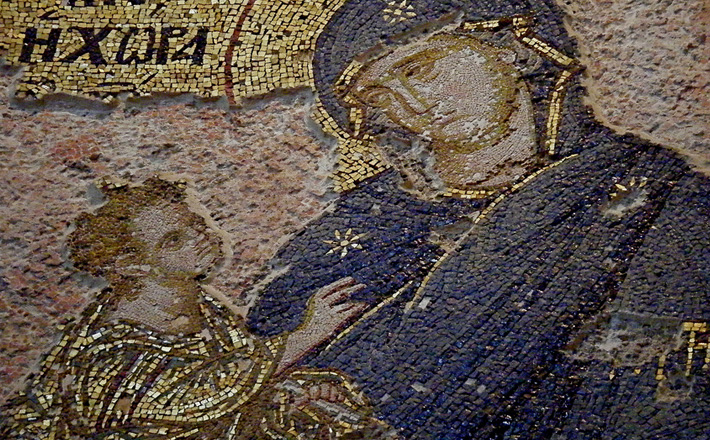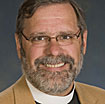Commentary on Psalm 96
Somewhere in the list of top ten things preaching professors say to students stand the requests to “be specific,” “be concrete.”
Psalm 96 is chock full of imperatives to laud, praise, extol, bless (thank), and worship God, but curiously stingy with concrete, specific reasons why.
Imperatives outweigh indicatives by about six to one! But careful reading can discern the reasons; they boil down to these: God made the heavens and is surrounded by beautiful majesty; and God has firmly established the world and is coming to judge the earth and its peoples with equity and truth.
The psalm is organized around two cycles each of which begins with a series of those lavish imperatives balanced by terse descriptions of God’s praiseworthiness. The first cycle (verses 1-6) focuses on distinguishing God from idols by affirming that the power to create belongs to God alone. As James Mays puts it, the question being answered in the royal theology psalms is, “which God is over all others.”
Not only does God alone create, God’s creative power is accompanied by the sure marks of God’s “style”: honor, majesty, strength, and beauty. Idols create nothing and whatever “style” they possess they borrow from the hands or imaginations that fashion them. The Christmas use of this portion of the psalm might invite the preacher to consider what Jesus teaches about God’s “style” and how our typical notions of divine honor, majesty, strength, and beauty are turned inside out by all that unfolds in Jesus’ birth, life, teachings, and death.
The second cycle (verses 7-13) focuses on God’s provision of a stable, reliable home and of God’s inevitable justice. The former takes away our anxiety (notice it is humans who tremble here, not the earth!); the latter promises that our hope for God’s reign will be vindicated. This section of the psalm also contains some awesome anthropomorphizing of natural elements: fields exulting, seas roaring, earth rejoicing, and forests singing!
The psalm promises that God shall reign; the challenge for the preacher is to connect the dots. To what in our story or in our world can we point that proves God’s capacity to rule and judge with righteousness and truth? Where in our world are the signs that our vindication is breaking through?
As a response the first reading from Isaiah 9, Psalm 96 is somewhat oblique. True, both passages touch themes of ruling and justice, but where the psalm focuses on the aural (singing and praising), the first lesson is visual (darkness, light, and shining). In addition, Isaiah walks us through the specific history of Israel’s oppression into a promised liberation; the sphere of the psalm is more general (even cosmic) and cultic.
Psalm 96 begins with an imperative that has made its way onto refrigerator magnets and inspirational posters: “sing to the Lord a new song.” The power of a new song is that it re-articulates the attributes of God, setting God apart from the idol-gods of each new context and season.
So could there be a more ironic liturgical setting for Psalm 96 than Christmas in North America? In most communities “new songs” on Christmas Eve might show up in the choir anthem, but the rest of the night is given over to carols and hymns known by heart. What a shame for this psalm to be one more act of nostalgia — one more artifact of someone else’s long ago encounter with inspiring awe.
When I’m sitting in the pew on Christmas Eve I frankly do not expect the psalm to eclipse Isaiah or Luke. But our world seems anything but stable and solid and the idols of the world effectively, if falsely, claim their own honor, majesty, strength, and beauty. I am unmoved by the psalmist’s imperatives and am left cold by the psalm’s boilerplate ascriptions. I long to be encountered by specific and concrete instances of God’s action (as the psalmist was) so that I can obey the imperative anew!
If you’re going to preach on the psalm on Christmas Eve, don’t talk about the imperatives by exegeting the thrill that called forth this old song from the ancient psalmist, rather follow the imperative yourself and inspire us to “sing a new song”! Recount the praiseworthiness of God — the creator baby of Incarnation — especially through the concrete ways God has surrounded our community with Jesus-style majesty, strength, beauty, and justice.
If you must, give a shout out to the manger and Egypt and Pentecost and God’s deeds of old, but then give us our own list of artifacts and events! Recount God’s actions in this community over the last year or ten … inspire us to sing our own new song.


December 24, 2013